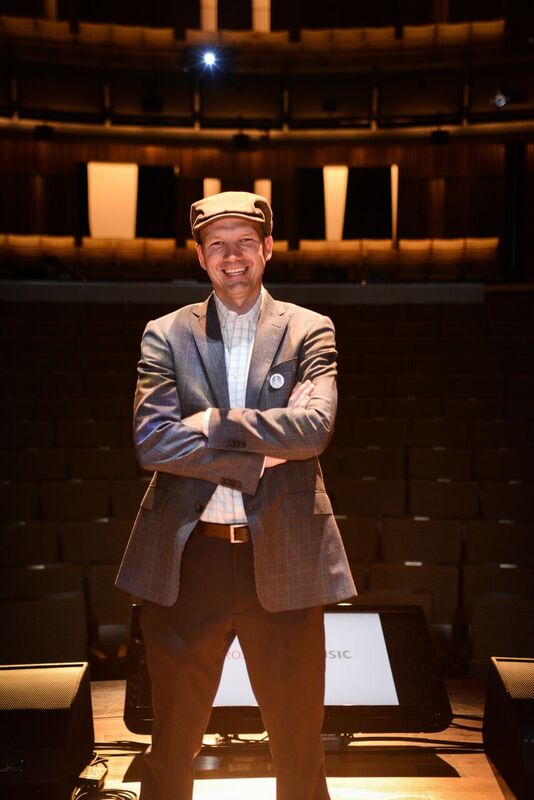![635950458615128294-Chris-McMurtry.jpeg [image : 82489118]](http://www.gannett-cdn.com/media/2016/03/31/USATODAY/USATODAY/635950458615128294-Chris-McMurtry.jpeg)
NASHVILLE — When Chris McMurtry stopped by the Nashville Entrepreneur Center in late 2014, he never suspected that his unannounced visit would lead to intense mentorship that would transform his business.
McMurtry is the founder and CEO of Nashville-based Dart Music, a digital startup that offers a tool to distribute classical music to online platforms. Friends told McMurtry that the NEC could help him grow the his business, but he didn’t know the center was about to launch Project Music, a tech accelerator devoted to companies aiming to disrupt the music industry.
“It was the most rewarding and hard 14 weeks of my entire life,” said McMurtry in a recent interview at the NEC offices. “Being born and raised in Nashville, I thought I knew everything about the music business. But we learned about radio. We learned about publishing. We learned about the entire business.”
Project Music is part of the evolution of Music City's economy. Operating out of Nashville’s heritage Trolley Barns, the NEC has been mentoring all sorts of entrepreneurs for six years; its organizers decided two years ago to launch an accelerator dedicated to the industry that made the city famous.
The thinking was that the local expertise in the music industry was strong, and many of the 250 mentors affiliated with the NEC were from the music industry. And what better environment to nurture such companies? So the NEC approached the Country Music Association about becoming the title sponsor for the program, and several local investors about seeding the companies that go through the accelerator. Even with the CMA involvement — sponsorship terms were not disclosed — Project Music, now in its second year, is not limited to one genre.
“This is about the music industry, not just people who work in country music,” said Heather McBee, NEC vice president of accelerator programming. “This is about an opportunity for Nashville to become the epicenter of innovation in the music industry.”
Project Music's first cohort took place in the winter of 2015, and its eight teams each received $30,000 in funding in exchange for 7% of their company. For Dart Music, this was the company's first outside investment.
The second cohort, which began in late January, features a core of seven teams, each of which received $47,000 for a 7% stake. (There is also a local non-profit in the program, which did not receive funding.)
This second cohort received 144 applications, more than double the first. A quarter of those new applicants came from outside the USA, and the applicants were more advanced than those in the previous year, McBee said. Those accepted included teams from Ukraine and Canada.
The latest Project Music cohort is being offered at the same time as a sister program called 1440, which mentors startups in the book publishing field, another keystone industry for Nashville. It includes startups from Zimbabwe, Brazil, Poland and India.
McBee said the NEC expects the Project Music entrepreneurs to also set aside a 3% stake in their company (in addition to the 7% given to investors) to reward the mentors with whom they work most closely. These young companies also must include payments to artists as part of their revenue models.
McMurtry said his Dart Music now has an online distribution platform that helps musicians get their music into online stores. These stores often have strict specifications on metadata (information such as the composer, name of the work, musicians, producer and sound engineer) that can be complex for genres like classical music, but Dart simplifies the process. Dart Music charges $20 to handle a single piece of music and $40 for an album and has about 200 customers. Assembling such data allows the musicians of many genres to present their recordings online and hopefully find a broader market for their work.
The classical music platform could lead to other applications. During the Project Music program last year, McMurtry was able to secure $1.5 million from angel investors.
One participant in this year's Project Music is Canadian startup Notetracks. Founded in 2014, Notetracks has developed a platform on which musicians can record music, analyze it and make notes for one another through the production process. Founder and CEO Kam Lal released the $9.99 app last year, and it is being used by more than 1,000 musicians and producers. The company is now preparing to launch a second version.
Lal has found the depth of expertise in Nashville particularly helpful.
“It’s the music environment,” said Lal. “If I had known it had been here a long time ago, I would have been here a lot sooner.”


